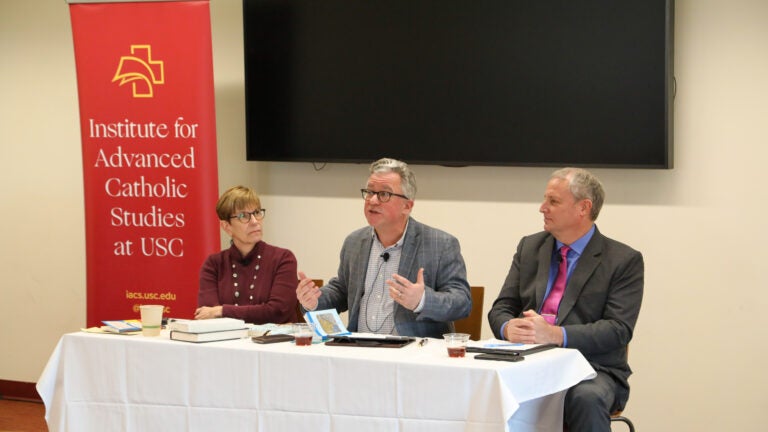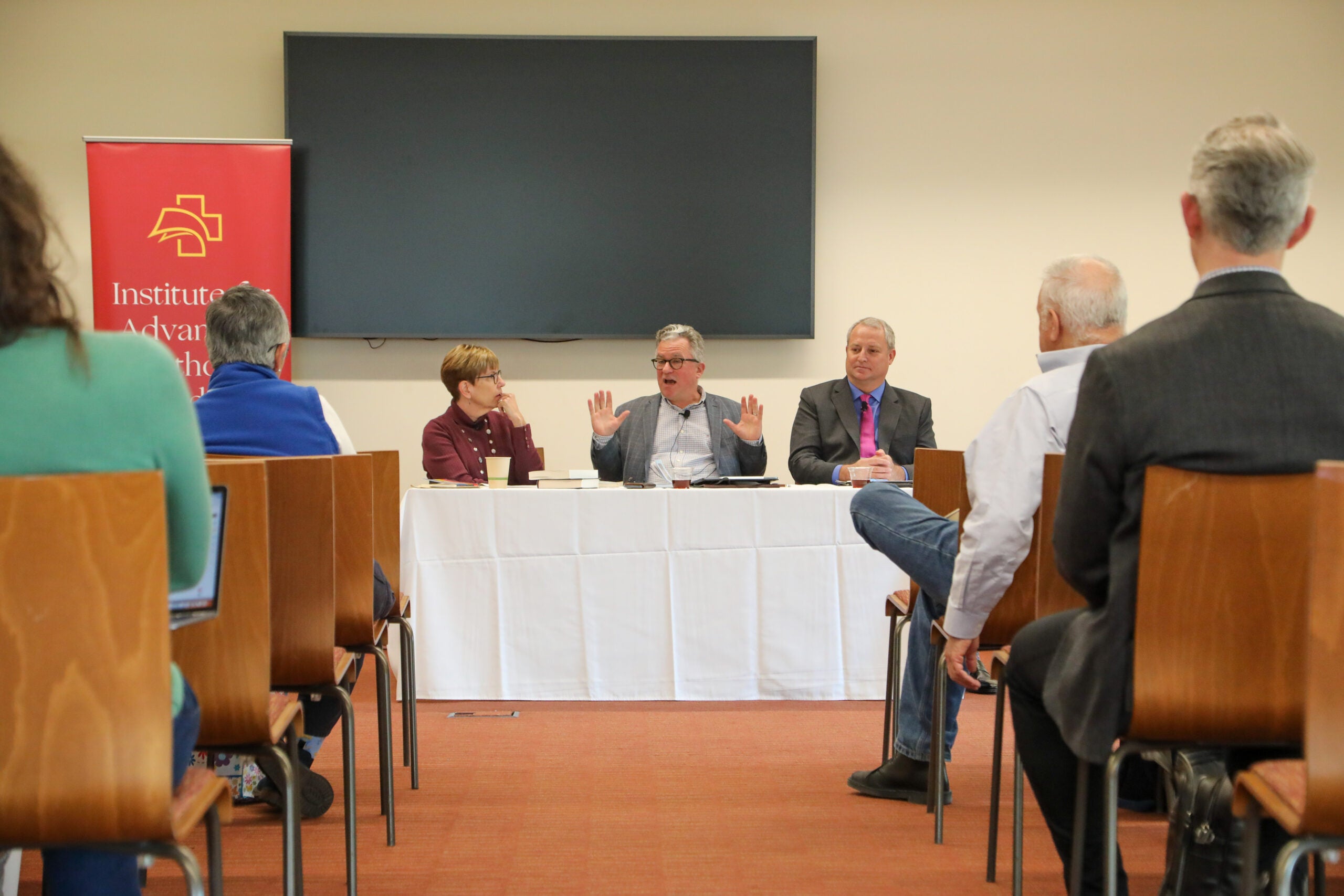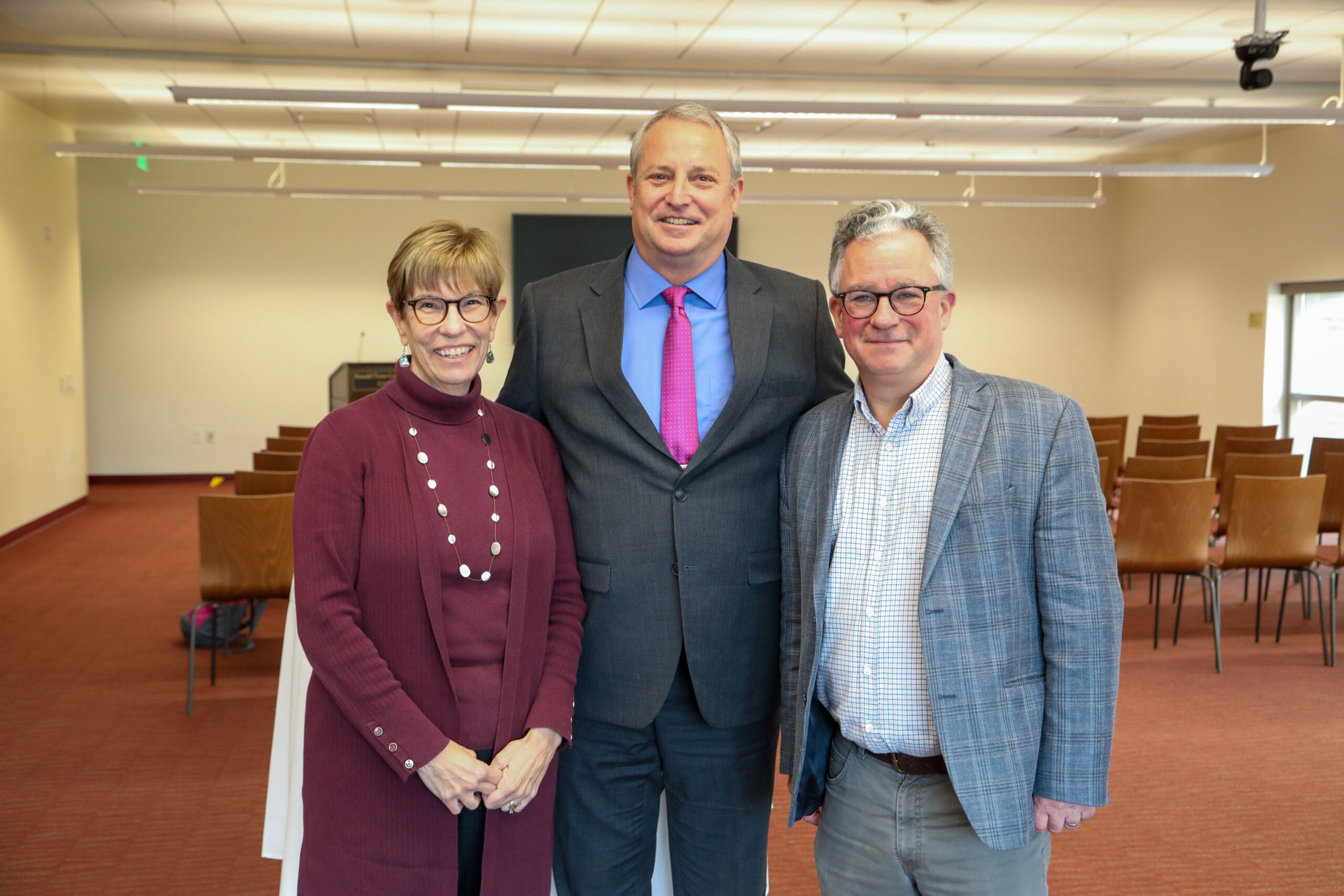
IACS hosted a panel discussion at USC on sustainability, ecology and faith.
IACS panel discusses Ecology, Sustainability and Faith
“Laudato si’,” the 2015 encyclical written by Pope Francis, spotlights the impacts of climate change and other ecological problems while imploring all people to take action to protect the environment.
With the subtitle “On Care for our Common Home,” the 184-page document published in 2015 has been simultaneously heralded as a landmark piece of environmental advocacy and criticized as a shrewd political statement.
But for many, it’s served as a powerful call to action in the growing movement toward ecological sustainability and environmental protection.
The challenges posed by the ecological crisis — and potential solutions — were highlighted recently at USC, where Vatican journalist and papal biographer Austen Ivereigh joined the university’s Chief Sustainability Officer Mick Dalrymple for “Caring for our Common Home,” an in-depth conversation on ecology, sustainability and faith.
Moderated by Institute for Advanced Catholic Studies at USC Executive Director Becky King Cerling, Ph.D., the conversation in February at the Tutor Campus Center focused on USC’s sustainability efforts and the work to strengthen environmental stewardship among the public, along with the impact of climate change on urban communities and the role of religion in the global movement to protect the natural world.
“Caring for our common home is an invitation to come together around environmental issues,” Cerling said. “Whether we have faith or not, we all live on this planet together.”

While some see climate change as a symptom of a society consumed by materialism and a culture marked by indifference, others see the environmental crisis as an opportunity to change the course of humanity.
“The natural world has suffered deeply from late modernity,” Ivereigh said. “We’re grappling and trying to come to terms with it. We know what needs to be done, but the real question is why we don’t see it as a matter that demands a transformation in our own lifestyles.”
“The natural world has suffered deeply from late modernity.”
Ivereigh, who has written books both about and with Pope Francis, lives on a 15-acre farm in England near the Welsh border. He grows vegetables, raises sheep and practices regenerative horticulture, which focuses on reducing emissions and waste while enhancing biodiversity.
Ivereigh was drawn to sustainability and ecology through Pope Francis, and views the publication of Laudato si’ as an opportunity for people to change their attitudes and behaviors while becoming mindful of their impact on environment.
“[Pope Francis’s] own ecological conversion is very similar to the one we’re all called to undergo, which is a gradual awakening to the truth about who we are and how we’re living and to stare reality in the face so we can find the path to our salvation,” Ivereigh said.
At USC, President Carol L. Folt is launching aggressive initiatives to reach ambitious sustainability goals, including achieving climate neutrality and zero waste. The university’s “Assignment: Earth” framework aims to combat climate change and create a more sustainable future — not just on campus, but across the globe.
Achievements at USC include reducing greenhouse gas emissions by 19 percent, reducing water consumption by 10 percent and installing 237 electric vehicle charging ports on the UPC and Health Sciences campuses.
USC is also home to more than 1,196 sustainability-focused courses and 11 research centers, programs and institutes dedicated to sustainability research.
Tackling climate change presents an opportunity for humanity to unite toward an urgent cause, said Dalrymple, who compared the environmental crisis to a car crash occurring in slow motion.
“We’re starting to deploy the airbags,” Dalrymple said. “The accident has already happened, but how much damage is done is based upon everything we do from here on out to mitigate and remove carbon, and minimize the impact on people who have the least ability to protect themselves, yet are potentially facing the most harm.”

The sustainability work happening at USC closely aligns with Laudato si’, which aims to deepen the relationship between humanity with the natural world and empower us to work toward protecting it because we are a part of it and rely on it to sustain us, Dalrymple added.
“Reading Laudato si’ was amazing,” Dalrymple said. “And I really think USC could play a similar role by helping people connect with the motivation to do something different.”
Watch a replay of “Caring for our Common Home” on the IACS YouTube channel.